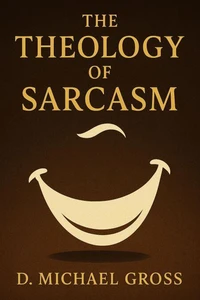Moses is often treated as a marble statue: heroic, remote, inevitable. This book restores his pulse. With literary clarity and Protestant theological rigor, D. Michael Gross follows Moses from the cry in the river to the silence of Midian, from the fire that doesn't burn out to the exhausting mercy of leading people who would rather go back to Egypt. Gross's thesis is simple and bracing: God forges leaders in contradiction.
Moses is raised by empire and called by the God who dismantles empires. He kills, flees, learns to keep sheep, then returns to argue-first with Pharaoh, then with the Lord who sends him. Along the way, the book refuses pious shortcuts. It faces guilt, power, obedience, and the slow grind of faith when miracles do not immediately change hearts. Rooted in Exodus, informed by historical context, and written in clean, muscular prose, Moses: The Man Who Argued with God offers a psychologically honest and doctrinally faithful account of how calling actually feels: reluctant, humbling, and sustained not by perfection but by presence.
Readers seeking substance beyond devotional platitudes-and pastors needing fresh language for familiar texts-will find here a work of literary theology that invites belief without insulting the mind.
Moses is often treated as a marble statue: heroic, remote, inevitable. This book restores his pulse. With literary clarity and Protestant theological rigor, D. Michael Gross follows Moses from the cry in the river to the silence of Midian, from the fire that doesn't burn out to the exhausting mercy of leading people who would rather go back to Egypt. Gross's thesis is simple and bracing: God forges leaders in contradiction.
Moses is raised by empire and called by the God who dismantles empires. He kills, flees, learns to keep sheep, then returns to argue-first with Pharaoh, then with the Lord who sends him. Along the way, the book refuses pious shortcuts. It faces guilt, power, obedience, and the slow grind of faith when miracles do not immediately change hearts. Rooted in Exodus, informed by historical context, and written in clean, muscular prose, Moses: The Man Who Argued with God offers a psychologically honest and doctrinally faithful account of how calling actually feels: reluctant, humbling, and sustained not by perfection but by presence.
Readers seeking substance beyond devotional platitudes-and pastors needing fresh language for familiar texts-will find here a work of literary theology that invites belief without insulting the mind.

 , qui est-ce ?
, qui est-ce ?